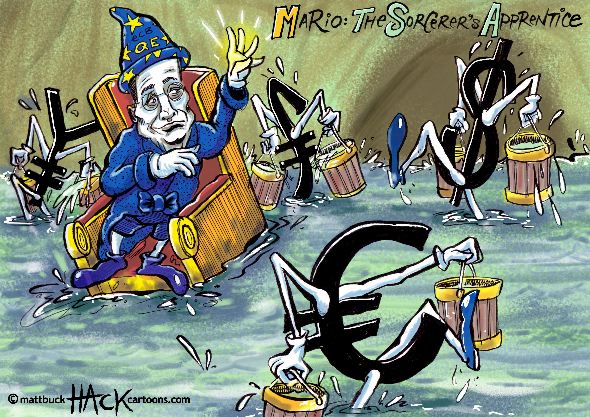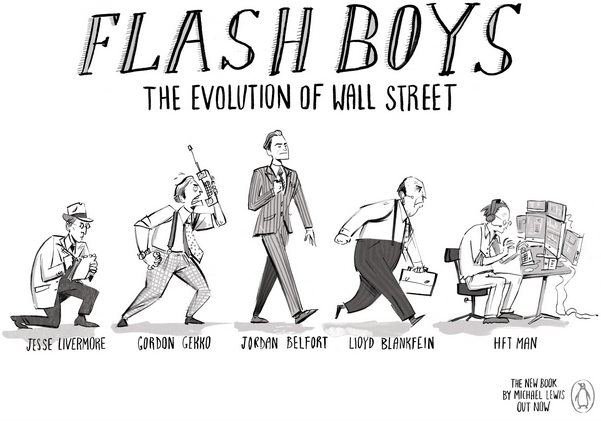
A month or so ago, I was struck by Ray Dalio’s comments at Davos. He seemed fairly concerned and the major media outlets didn’t really pick it up.
“It’s the end of the supercycle. It’s the end of the great debt cycle.” -Ray Dalio
What does this mean? I think the simplest explanation is that over the past several decades we’ve gone from a nation of savers who paid cash for things including homes and cars to a nation of spenders who use debt like mortgages, car loans and credit cards to pay for things.
And it’s not just on the consumer level. It’s also happened at the corporate level.
“Corporate debt was $3.5 trillion– in 2007, arguably a period and– many would describe as bubbly. It’s 7 trillion now. So it’s gone from 3.5 trillion to 7 trillion. As you know, most of that mix has been in more highly leveraged stuff, Covenant-Lite loans– high yield, that’s where the majority of the rise has been. And if you look at corporations have been using it for, it’s all financial engineering.” -Stan Druckenmiller
Government debt has also grown to multiples of GDP around the world. But it can’t keep growing forever.
“In the past 20 to 30 years, credit has grown to such an extreme globally that debt levels and the ability to service that debt are at risk, relative to the private investment world. Why doesn’t the debt supercycle keep expanding? Because there are limits.” -Bill Gross
The debt boom over the past few decades has been a big economic stimulant. It reminds me of the steroids era in baseball. You take a great player, put him on the juice and he becomes a record-breaking home run machine.
 Larry Busacca/GettyRay Dalio
Larry Busacca/GettyRay Dalio
But what happens when he comes off the juice? Have you seen a picture of Mark McGuire or Sammy Sosa lately? They are shadows of their former selves. Now that rates are zero and everyone has borrowed as much as they possibly can debt is no longer the super-stimulant it once was.
“The process of lowering interest rates causing higher levels of debt, debt service and spending, I think is coming to an end.” – Ray Dalio
The steroid era is over. So what are the implications for the economy and the markets?
“The implications are much lower growth, less inflation, lower interest rates, and less profit growth.” -Bill Gross
These are all symptoms that we’ve already witnessed since the financial crisis, right? Slower economic growth has been partially masked by rising asset prices and the wealth effect. Slower profit growth has been masked by the “financial engineering” Druck mentioned above. But that doesn’t change the fact that we are now facing a post-steroid era for the economy.
“We brought consumption forward and issued one giant credit card for the past 30 years. Now the bill is coming due. Investors need to get used to low returns, and low growth, inflation, and interest rates for a long time.” -Bill Gross
 JanusBill Gross
JanusBill Gross
What’s probably most troublesome about the whole situation is that now that rates are zero or negative, debt levels have reached their maximum capacity and asset prices are already inflated (and spreads flattened), central banks no longer have the ability to ameliorate an economic slowdown by easing monetary policy.
“Central banks have largely lost their power to ease… We now have a situation in which we have largely no spreads and so as a result the transmission mechanism of monetary policy will be less effective. This is a big thing… So I worry on the downside ’cause the downside will come.” -Ray Dalio
With corporate debt levels twice what they were before the financial crisis, the covenants on much of that debt weaker than ever before and liquidity in the bond market disappearing, the next downturn could present a unique challenge for the Fed. And their traditional tool to address these sorts of challenges is now essentially impotent. No wonder Dalio is worried.
Read more: http://uk.businessinsider.com/dalio-druckenmiller-gross-warn-on-economy-2015-3?r=US#ixzz3Ta0pyIkh
Related Posts
78
https://www.youtube.com/watch?v=ZWz_Pln_uuI
Tags: trading
76
http://www.swfinstitute.org/fund-rankings/
Tags: trading
75
Forex: 10 Events to Watch Next Week In order of release 1. UK Consumer Price Index (Aug 19) 2. New Zealand Dairy Auction (Aug 19) 3. RBA Semi-Annual Testimony (Aug 19) 4. Bank of England Minutes (Aug 20) 5. FOMC Minutes (Aug 20) 6. HSBC China Manufacturing PMI Aug Flash…
Tags: trading
73
Bill Gross’ spectacular fall from the top of the bond market has put tens of billions in play at a time when minuscule yields demand a fixed-income superstar. A brilliant, battle-scarred billionaire, Jeffrey Gundlach, stands ready to be coronated. Bond manager Jeffrey Gundlach is wearing a white T-shirt, faded blue…
Tags: gross, trading
71
There are serie parallels between the stock market’s recent behavior and how it behaved right before the 1929 crash. That at least is the conclusion reached by a frightening chart that has been making the rounds on Wall Street. The chart superimposes the market’s recent performance on top of a…
Tags: trading










